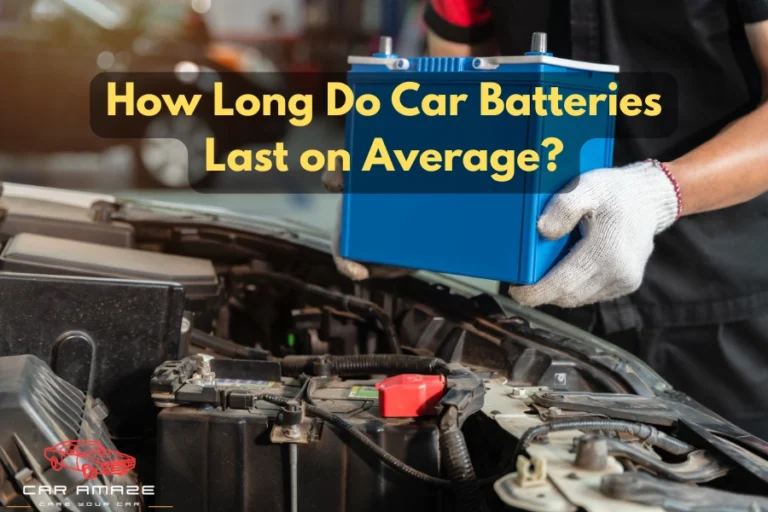How Refinancing Your Car Can Save You Money in the Long Run

Refinancing your car loan is one of the most effective yet underutilized strategies for improving your financial health. Whether you are dealing with high interest rates, a change in income, or simply want to optimize your loan terms, understanding how refinancing your car can save you money in the long run is essential. This guide explores every angle, from financial benefits to lender options and industry trends, so you can make an informed decision.
Table of contents
- What Is Car Loan Refinancing?
- Top Scenarios Where Refinancing Makes Sense
- How Refinancing Saves You Money
- Buy Here Pay Here and Refinancing: A Second Chance
- Step-by-Step Guide to Refinancing Your Car Loan
- Top Companies Offering Auto Loan Refinancing in 2025
- Common Myths About Refinancing Debunked
- When Refinancing Might Not Be the Best Option
- Conclusion
- FAQs
What Is Car Loan Refinancing?
Car loan refinancing involves replacing your current auto loan with a new loan, usually through a different lender. The new loan pays off your old one and ideally comes with better terms, such as a lower interest rate, reduced monthly payments, or a more manageable loan term.
Why It Matters:
- It can significantly reduce the total amount you pay over the life of the loan.
- It offers flexibility if your financial situation has changed.
- It can help you escape high-interest loans, especially from buy here pay here dealerships.
Refinancing is not just for people in financial distress—it’s a smart move for anyone looking to optimize their finances.
Top Scenarios Where Refinancing Makes Sense
Refinancing isn’t a one-size-fits-all solution, but there are several common situations where it can be highly beneficial:

1. Your Credit Score Has Improved
If your credit score is higher now than when you financed your car, you may be able to refinance at a lower rate. For instance, lowering your APR from 12% to 6% on a $20,000 loan could save you more than $2,000 in interest. If your credit was impacted by a past car repossession, there are ways to fix it. Once you fix your credit after a car repossession, you can easily lower your interest rate and save on your loan.
2. You Started with a High-Interest Loan
Many people, especially those who financed through buy here pay here dealerships, start with high-interest loans due to poor credit. Refinancing allows you to transition to a more traditional lender with better terms once your credit improves.
3. Your Financial Situation Has Changed
If your income has decreased or you’ve taken on new expenses (like a mortgage or student loans), refinancing to a longer loan term can reduce your monthly payments and ease financial pressure.
4. Interest Rates Have Dropped
Auto loan interest rates fluctuate with the market. If rates have dropped since you took out your original loan, refinancing can help you take advantage of the lower rates and save money.
5. You Want to Remove a Co-Signer
If you originally needed a co-signer to qualify for your loan, refinancing can allow you to remove them once your credit and income are strong enough to stand on their own.
How Refinancing Saves You Money
Let’s explore the specific ways refinancing can lead to long-term financial benefits:
1. Lower Interest Rates
Interest is the cost of borrowing money. With a lower interest rate, you’ll spend less on interest throughout the loan term. As an example, lowering your APR from 10% to 5% on a $25,000 loan with a 60-month term can help you save over $3,300 in interest.

2. Reduced Monthly Payments
With a lower interest rate or extended loan term, your monthly payment decreases, freeing up money for other financial priorities. This is especially helpful if you are managing multiple financial obligations.
3. Shorter Loan Terms
Refinancing to a shorter loan term with higher monthly payments can help you eliminate your car loan more quickly and cut down on interest. This option is perfect for anyone aiming to pay off their debt faster.
4. Avoiding Negative Equity
If your car is depreciating faster than you are paying off the loan, refinancing can help you avoid being “upside down” on your loan—owing more than the car is worth.
Buy Here Pay Here and Refinancing: A Second Chance
Buy here pay here (BHPH) dealerships offer in-house financing, often to buyers with poor credit. While convenient, these loans typically come with high interest rates and limited flexibility.
Why Refinancing Is Crucial for BHPH Customers:
- Escape High APRs: BHPH loans often exceed 15–20% APR. Refinancing can cut this in half.
- Better Loan Terms: Traditional lenders offer more favorable terms, including grace periods and lower fees.
- Credit Building: Refinancing with a mainstream lender can help you build or rebuild your credit score.
If you’ve made consistent, on-time payments for 6–12 months, you may qualify for refinancing, even if you started with a BHPH loan.
Step-by-Step Guide to Refinancing Your Car Loan

Refinancing your car loan doesn’t have to be complicated. Here’s a step-by-step guide to make the process easier.
1. Check Your Credit Score
Use tools like Credit Karma or your bank’s app to check your score. A score above 650 improves your chances of getting a better rate.
2. Gather Your Loan and Vehicle Information
You’ll need:
- Current loan balance and interest rate
- Vehicle make, model, year, and mileage
- Vehicle Identification Number (VIN)
- Proof of income and insurance
3. Compare Lenders
Shop around for the best rates. Consider:
- Banks and credit unions
- Online lenders like Caribou, LightStream, and LendingClub
- Auto manufacturers’ finance arms (e.g., Ford Credit, Toyota Financial)
4. Car Repossession Loopholes
If your car has been repossessed, you might face some challenges during the refinancing process. However, there are some car repossession loopholes and strategies that help you avoid or recover from repossession. Even there are some lenders who offer special refinancing programs that help borrowers stay safe from repossession.
5. Apply for Pre-Approval
Many lenders offer pre-approval with a soft credit check, allowing you to compare offers without affecting your score.
6. Finalize the Loan
Once your application is approved, the new lender takes care of your previous loan balance. You’ll make your payments to the new lender according to the new agreement.
Top Companies Offering Auto Loan Refinancing in 2025
Several reputable lenders offer competitive refinancing options:
- Capital One Auto Finance: Known for flexible terms and easy prequalification.
- LightStream (Truist): Offers low rates for borrowers with good credit.
- Caribou: Specializes in auto loan refinancing with a fast online process.
- Bank of America: Offers refinancing with no application fees and competitive rates.
- Credit Unions: Often provide the lowest rates and personalized service.
Some automakers also offer refinancing through their financial services divisions, such as GM Financial, Hyundai Motor Finance, and Nissan Motor Acceptance Corporation.
Common Myths About Refinancing Debunked
Let’s clear up some common misconceptions:
Myth 1: “Refinancing Hurts My Credit”
Truth: While applying may cause a small dip, long-term on-time payments can improve your score.
Myth 2: “It’s Not Worth It for Small Loans”
Truth: Even a 1–2% rate drop can save hundreds, especially on longer terms.
Myth 3: “Only New Cars Can Be Refinanced”
Truth: Many lenders refinance vehicles up to 10 years old or with up to 150,000 miles.
When Refinancing Might Not Be the Best Option
Refinancing can offer several benefits, but it’s not the right solution for everyone.
Avoid refinancing if:
- You are close to paying off your loan
- Your car has depreciated significantly
- Your current loan has prepayment penalties
- You plan to sell or trade in your car soon
Always calculate the total cost of refinancing, including fees, to ensure it’s worth it.
Final Thoughts: Is Refinancing Right for You?
Understanding how refinancing your car can save you money in the long run is a powerful step toward financial freedom. Whether you are trying to lower your monthly payments, escape a high-interest buy here pay here loan, or simply take advantage of better rates, refinancing can be a game-changer.
By evaluating your credit, comparing lenders, and understanding your financial goals, you can make a smart, informed decision that benefits your wallet today and for years to come.
FAQs
What is car loan refinancing?
Car loan refinancing is the process of replacing your existing loan with a new one. The new loan pays off the old one, and it often has a lower interest rate and reduced monthly payments.
How does refinancing lower my car payments?
The refinancing lowers the car payment because it has a lower interest rate and an extended loan term. The lower interest rate reduces the amount of installment prices, and the extended period spreads the payment out.
Can refinancing help if I have a bad credit score?
Yes, refinancing can help improve your financial situation even with bad credit. However, you must make timely payments to improve your credit score and qualify for the lower rate.
What are the car repossession loopholes?
The car repossession loopholes are the strategies that help borrowers avoid or recover from the repossession. The repossession usually happens when the borrower fails to make payments on time and misses too many installments.
Is refinancing worth it for small car loans?
Yes, refinancing can still be beneficial for smaller loans. Ultimately, you can save huge money due to the reduction in your interest rate.







